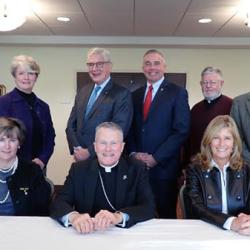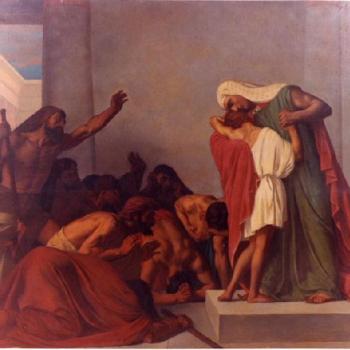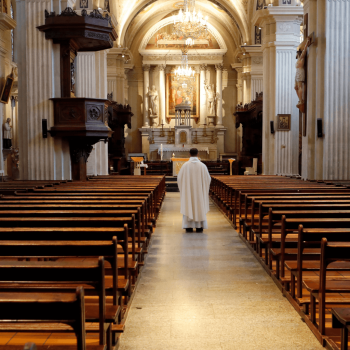These are the places where we ascend or descend to; where the boundaries of truth, beauty, and goodness leave off and falsehood, ugliness, and evil begin. Our conscience helps us find and run our fingers along the outer edges of precarious ledges. Otherwise we might slip and fall, hurtling into danger. Or worse.
That is supposing, of course, that we have a conscience that is the abode of the good, the strong, and the Almighty.
We have a duty to pursue a well-formed conscience, and to help shape the consciences of children given to our care.
A well-formed conscience is upright and truthful. It formulates its judgments according to reason, in conformity with the true good willed by the wisdom of the Creator. Everyone must avail himself of the means to form his conscience.
Faced with a moral choice, conscience can make either a right judgment in accordance with reason and the divine law or, on the contrary, an erroneous judgment that departs from them.
A human being must always obey the certain judgment of his conscience.
Conscience can remain in ignorance or make erroneous judgments. Such ignorance and errors are not always free of guilt. (Catechism of the Catholic Church, par 1798-1801)
It is possible to have an ill-formed conscience and make sinful choices, all in the name of following one's conscience. That's the crux of the matter for us today. Are we following a right judgment "in accordance with reason and divine law"? Or are we following another path relative to our own preferences and pleasure?
Even though we are designed and created in the image and likeness of the Creator, our consciences can become deformed and distorted by selfishness, weakness, and the deviance of sin. We must prevent that. If we've strayed, we must repent and start anew.
We must have our consciences governed by God's Word and Love. Nothing else is as durable or trustworthy; anything less fails to satisfy.
The Word of God is a light for our path. We must assimilate it in faith and prayer and put it into practice. This is how moral conscience is formed. (Catechism of the Catholic Church, par. 1802)
This Sunday at Mass, we'll meet the Psalmist who sings of the law of God found in the sanctuary of the human heart.
The law of the LORD is perfect,
refreshing the soul;
The decree of the LORD is trustworthy,
giving wisdom to the simple.
The precepts of the LORD are right,
rejoicing the heart;
the command of the LORD is clear,
enlightening the eye. (Ps. 19: 8, 9)
Again, the conscience is a powerful retention mechanism. When the memory of conscience is formed by the precepts of the Lord, it experiences on-going renewal and rejoicing.
The power of conscience holds on to many things at once. It benefits us most poignantly when it holds dear the memory that we are good, we are loved, that we are better than the wrongs that we do or fail to do. Let us listen and trust the Voice that knows us better than we know ourselves.





